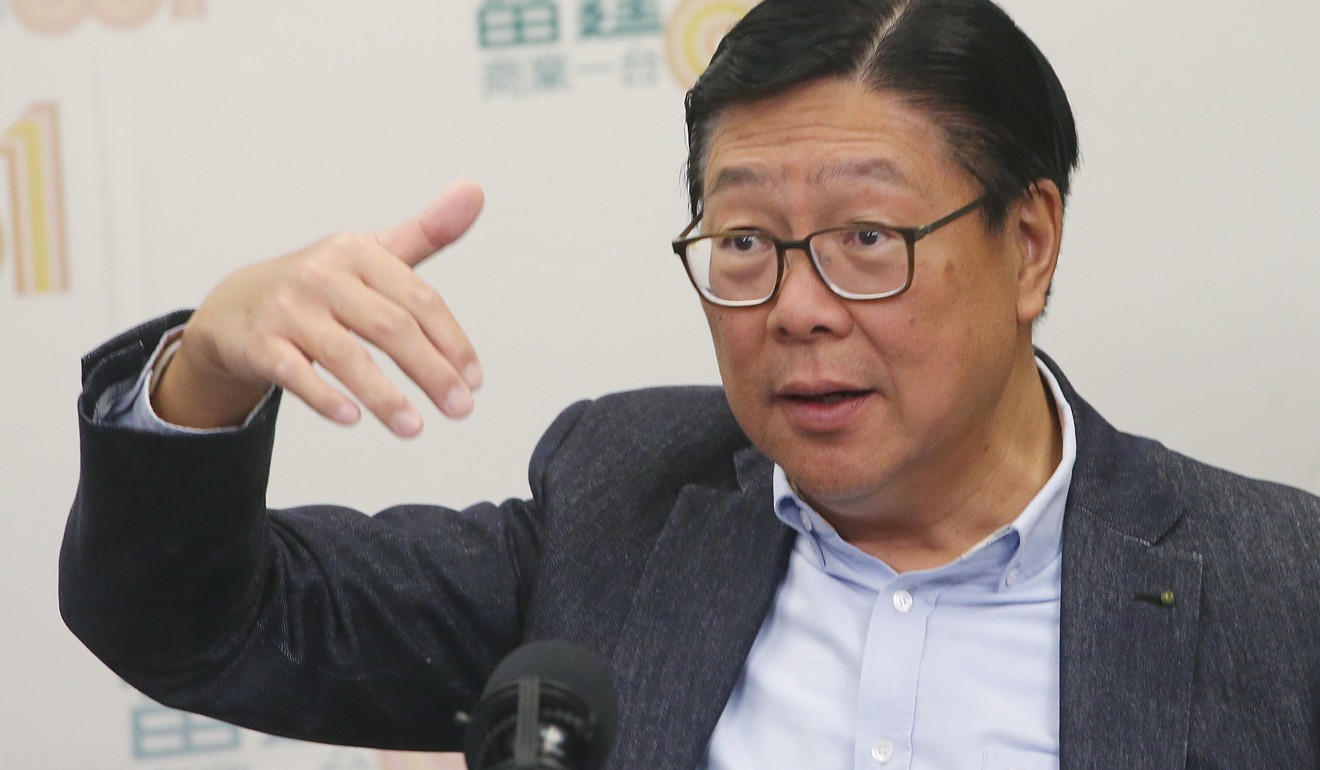
High-speed rail passengers can buy tickets to all destinations in mainland China at Hong Kong terminus, transport bureau clarifies
Government issues clarification after MTR chairman Frederick Ma says tickets for destinations requiring change at Guangzhou South station must be bought across border
The government has clarified that travellers on the cross-border high-speed rail link will be able to buy tickets to all destinations in mainland China at the Hong Kong terminus, hours after MTR Corporation chairman Frederick Ma Si-hang said many passengers would need to get them in Guangzhou.
A Transport and Housing Bureau spokesman said on Monday morning that this option would come with a service charge.
The bureau was responding to Sunday’s comments by Ma, who said passengers would not be able to buy tickets for destinations requiring a change at Guangzhou South station, at the other end of the 142km line, and would need to buy them upon reaching the mainland.
The MTR chief said this was due to differences in ticketing systems north and south of the border. MTR runs the local section of the line.
Hong Kong express rail will not run until proven safe after derailment
Under the current plan, trains will run between Hong Kong and four stations in Shenzhen, Humen and Guangzhou, all in neighbouring Guangdong province. There will also be long-haul trains directly to 14 major cities such as Beijing, Shanghai and Kunming, tickets for which will all be available in Hong Kong.
The transport bureau spokesman said a mainland operator would be running ticketing booths and machines at the B1 ticketing hall of the terminus selling both types of tickets.
“For passengers heading to cities other than Hong Kong’s direct destinations, they can purchase tickets for both the cross-border and mainland journeys at the booths; there is no need to purchase mainland section train tickets at express rail stations on the mainland,” he said.

Ma’s comments were made on a radio show on Sunday.
“Since we do not cover all the rail lines, those tickets may not be available for purchase in Hong Kong,” he said during the programme.
The MTR head said he expected some people to criticise the arrangement as “inconvenient” and hoped the public would be “mentally prepared”.
But he added: “It does not mean the ticketing system can’t be amended in future.”
The HK$84.4 billion (US$10.7 billion) line – expected to open in September – has been mired in controversy for years, over building delays and budget overruns, and over a controversial joint checkpoint plan at the Hong Kong end, the so-called co-location, under which mainland Chinese officials would enforce mainland laws in part of the terminal.
Earlier this year, fares were revealed to be higher than estimated, with the 48-minute journey from West Kowloon, in Hong Kong, to Guangzhou South costing HK$260 – HK$50 more than the current, slower service from Hung Hom to Guangzhou East.
It seems now we only have faster and more expensive options to Guangzhou South station
Ma on Sunday urged lawmakers not to “block the spinning of the Earth” – a Cantonese phrase meaning to get in the way of progress – but to “consider the overall interests of the situation”.
He warned that if the bill did not pass on time, it would delay the launch of the rail service. Officials hope to submit it to the full council by the end of the month.
In response, Democratic Party chairman Wu Chi-wai, who was among the pan-democrats who proposed those amendments, said he had no idea what Ma was talking about. Wu argued the number of amendments proposed was not excessive and that it was “very normal” for lawmakers of different opinions to propose changes.
He said the ticketing arrangements as explained by Ma proved that the high-speed link was not as efficient as expected.
“It seems now we only have faster and more expensive options to Guangzhou South station,” Wu said. “Building the express rail link is not cost-efficient.”
But tourism sector lawmaker Yiu Si-wing said the impact of the ticketing arrangement would not be significant, as he expected most passengers from Hong Kong would use the link to get to popular destinations such as Guangzhou or Shantou, for which direct tickets would be available locally.
Six things to know about controversial co-location scheme
But he said officials should solve the problem in future.
“Passengers might worry if they know they can't get a ticket [to their final destination] after reaching Guangzhou,” Yiu said.
And Irons Sze, permanent honorary president of the Chinese Manufacturers’ Association, said he was also not worried.
Sze, who travels on the mainland’s high-speed rail network several times a year, said he could pre-order tickets for the connecting journeys online and pick them up at interchange stations.


